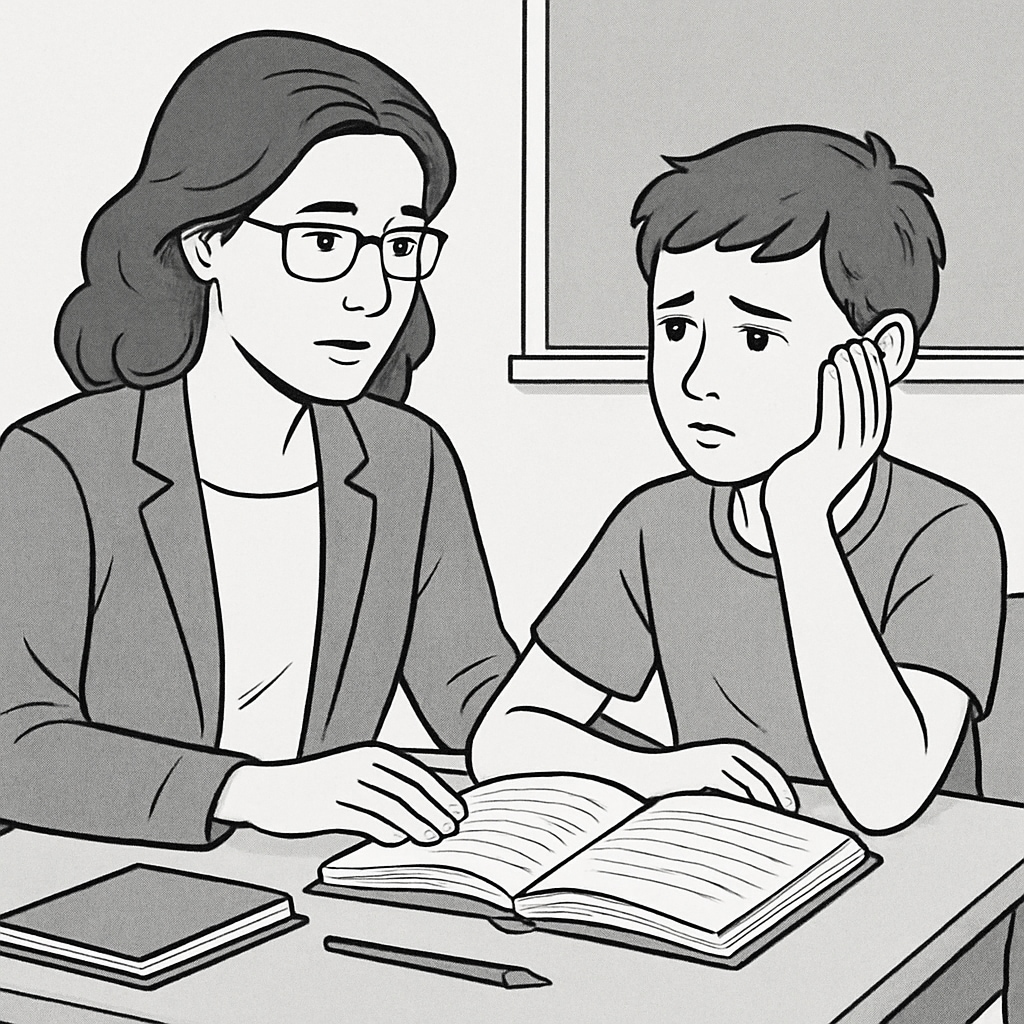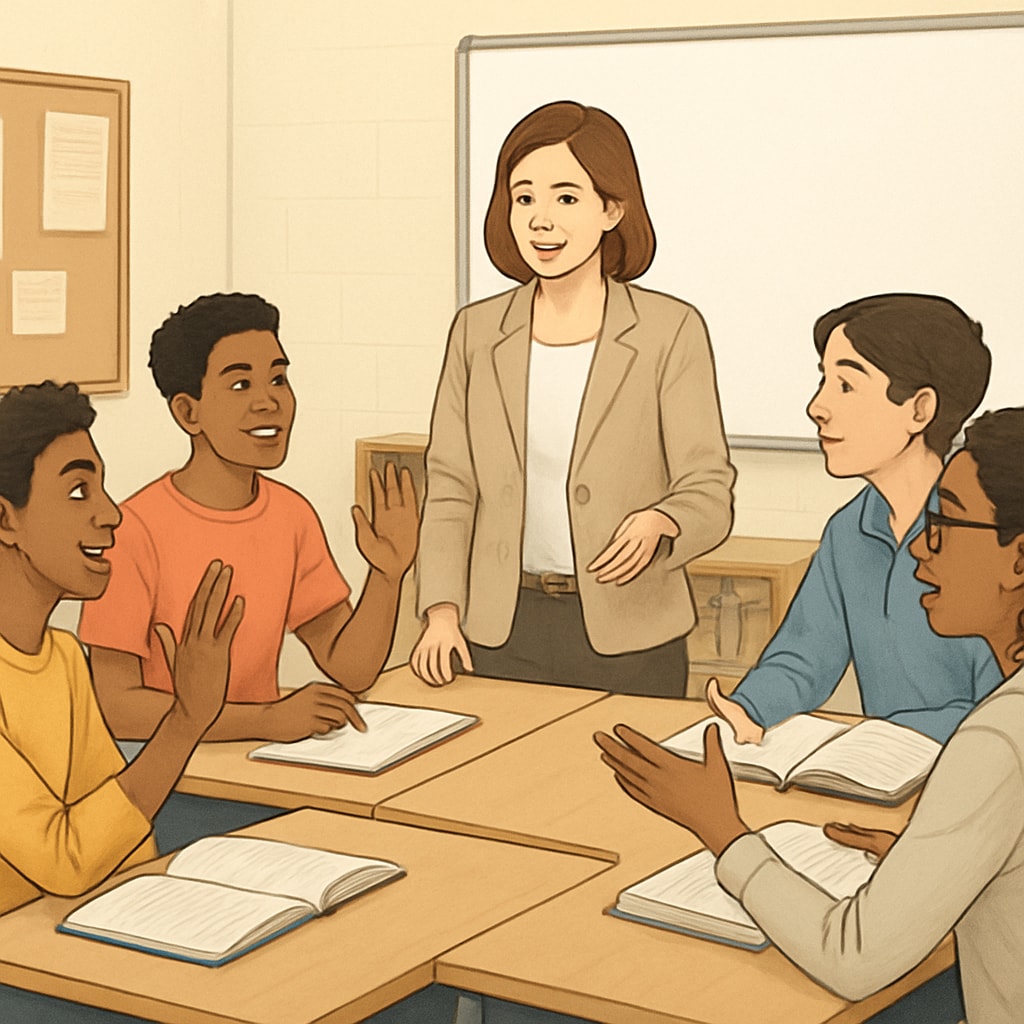In the realm of education, few moments are as heartwarming as hearing a student say, “Thank you for truly listening to me.” This simple act of student gratitude has a profound influence on teacher impact and the dynamics of student-teacher interaction. When educators take the time to genuinely listen, they create an environment where trust flourishes and students feel valued, paving the way for holistic development. But why does listening matter so much in education, and how does it strengthen the bond between students and teachers? Let’s delve into the power of gratitude and the transformative role of active listening in the classroom.
The Transformational Impact of Student Gratitude
Gratitude, though often understated, holds a unique power in fostering human connection. In education, when students express genuine appreciation, it validates teachers’ efforts and reinforces the value of their work. For example, consider a teacher who takes extra time to guide a struggling student. When the student later says, “Thank you for not giving up on me,” this acknowledgment not only inspires the teacher but also strengthens their commitment to supporting others.
Research supports this idea. According to a Britannica article on gratitude, expressing thanks builds emotional bonds and enhances mutual respect. For teachers, hearing words of appreciation can reignite their passion for teaching, especially during challenging times. Similarly, for students, expressing gratitude fosters humility and self-awareness, essential traits for personal growth.

Listening: The Bridge Between Teachers and Students
Active listening is more than just hearing words; it’s about understanding and valuing the speaker’s perspective. In the classroom, when teachers actively listen, they acknowledge the individuality of their students, making them feel seen and heard. This fosters a positive environment where students are more likely to engage and share their thoughts.
For example, a high school student once shared how transformative it was when their teacher asked, “What do you think we can do to make this lesson better for you?” The student’s suggestion was implemented, and they later expressed their gratitude by saying, “Thank you for truly valuing my opinion.” This simple act of listening not only improved the classroom experience but also strengthened the mutual respect between the teacher and the student.
Moreover, studies from organizations like Educational Psychology on Wikipedia highlight that active listening is a cornerstone of emotional intelligence. Teachers who practice this skill often see improvements in student behavior, academic performance, and overall classroom dynamics.

How Teachers Can Cultivate Gratitude and Listening Skills
Building a culture of gratitude and active listening doesn’t happen overnight, but there are actionable steps educators can take:
- Encourage Open Communication: Create a safe space where students feel comfortable sharing their opinions and concerns without fear of judgment.
- Model Gratitude: Teachers can lead by example, frequently expressing appreciation for students’ efforts, which in turn encourages students to do the same.
- Practice Active Listening: This involves maintaining eye contact, paraphrasing what students say, and asking clarifying questions to ensure understanding.
- Celebrate Small Wins: Recognize and celebrate both individual and collective achievements, reinforcing a culture of appreciation.
By incorporating these practices, teachers can create a classroom environment where gratitude and listening become integral to daily interactions.
The Long-Term Benefits of Respectful Interaction
The impact of gratitude and active listening extends far beyond the classroom. Students who feel heard and appreciated are more likely to develop strong communication skills, empathy, and self-confidence. These traits not only enhance their academic journey but also prepare them for future personal and professional relationships.
For teachers, the rewards are equally significant. Hearing a heartfelt “thank you” from a student can be a reminder of their purpose and a source of motivation. It’s these moments of genuine connection that make education a truly rewarding profession.
In conclusion, the simple yet powerful acts of gratitude and listening have the potential to transform the educational experience for both students and teachers. By fostering an environment of mutual respect and appreciation, educators can unlock their students’ full potential while experiencing the profound joy of making a lasting impact.
Readability guidance: Use short paragraphs and lists to summarize key points; maintain a balance of active voice and transitional phrases (e.g., however, therefore, for example). Distribute keywords evenly throughout the text to enhance SEO without overloading the content.


